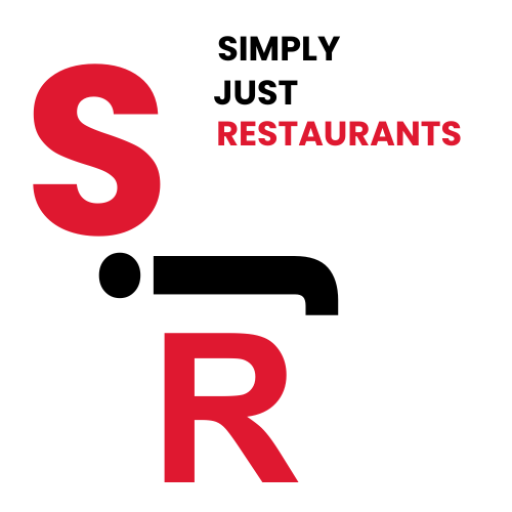Start Successful Cloud Kitchen From Home Kitchen in 2024
Food industry has a lot of potential for success. It is dynamic, vast and very diverse. The market changes and grows constantly, and offers a lot to invest and explore. The concept of cloud kitchens has grown significantly and attracted a large number of entrepreneurs during COVID.
Cloud Kitchens have revolutionized the food industry. They are an efficient, cost-effective and innovative way of running a business.
What better way to get started as a chef than by creating your very own cloud kitchen. If you’re new in the industry and don’t know how to launch a home-based cloud kitchen, here are some tips to help you get started.
Cloud kitchens can also be called ghost kitchens or dark kitchens. They are restaurants that only accept online orders. There is therefore no need for a restaurant. You only need to spend your money and focus on food preparation and delivery. There are also many benefits to starting your own cloud kitchen.
- Marketing efforts are minimal
- Minimum pressure
- Flexible working hours
- Startup cost is lower
- Easy to Scale
- Minimal risk
How to Start a Cloud Kitchen at Home: 12 tips
It’s not as difficult to start a cloud-based kitchen, but the process is still challenging. There are some steps you can take to get a cloud-based kitchen up and running from your home.
1. Market Research And Analysis
Any business must invest in research. Your business’s success depends on how much research you conducted. The research also helps identify gaps in the marketplace and fill those with your idea. To identify your niche, you need to know the trends and the interests of the people who will be using the cloud kitchen. It’s also important to do market research to find out what your competition is doing, and to see how you could be more successful than them.
2. Create a Concept
After you have done your research and analyzed the market you can easily develop a business concept. It’s also important to determine the kind of food and menus that will attract your audience.
3. How to Create a Business Plan and Financing
A business plan is a road map for launching a cloud-based kitchen. The business plan is not just a guide to running your company, but also a tool to attract investors and business partners. The business plan must include the following: your target market, marketing strategies, financial analysis, SWOT analyses, operational plans, and marketing. A business plan that is accurate will ensure your success.
4. Make a Financial Plan
You will save money by opening a cloud-based kitchen at home, but you still need to budget for certain expenses. It’s therefore important to plan and secure your finances. The expenses are limited to equipment, packaging and delivery costs. You do not need to invest in a location because you will be starting your cloud-based kitchen from home.
5. Licence and registration required
To ensure the successful operation of your cloud kitchen, or food business in general, you will need the necessary legal documents and licenses. You will also need a number of licenses to launch a cloud kitchen in your home. Included are.
- Shop And Establishment Act
- Health and Trade License
- No Objection Certificate
- Fire Safety License
- GST Registration
- FSSAI License
6. Setting Up Your Cloud Kitchen From Home Kitchen
You still need a good setup in your kitchen even if your cloud kitchen doesn’t require a particular location. Setting up your kitchen to meet all health and safety standards for food preparation is important. Your home kitchen must also have an adequate water supply, drainage and a good working environment. Gas and electricity should not be interrupted.
7. Quality Kitchen Appliances
The kitchen is the heart of any business in the food industry, so you need to make sure that it has all the equipment necessary for the food preparation. A high-quality set of kitchen appliances will also improve the quality and productivity of your food. It’s important to start with the essentials, but it is not necessary. Start with the essentials such as commercial refrigerators and gas stoves. You may also want to include cooking utensils. You can also add equipment later, such as a deep-fryer, griller, shelves and racks, and dishwasher, depending on the needs of your business.
8. Hire Staff
You may not require a professional chef if you’re a home-cook, but an extra person to help you prepare food, clean, package, or deliver it is needed. You must also hire staff that is trained in food safety and hygiene.
9. Food delivery platforms are a great way to partner with.
When you run a cloud-based kitchen and serve food online, your delivery partners will be a key part of the business. Your business should also partner with food delivery platforms to reach out to more people.
You can get food delivered by multiple delivery partners, such as Swiggy Zomato Uber Eats and others. They will, however, charge commission for each order. The commission rates can be negotiated and you choose one that suits your cloud kitchen objectives.
10. Create a Menu
Menus are the most important element in any cloud kitchen, as they represent your business. It is important to create a menu because it will make or break your company. Create a menu that is in line with your concept of a cloud kitchen and your target audience. Calculate the price and make sure it is both affordable to your customers, as well as profitable. Your menu should be presented in a unique way to attract customers and encourage them to place an order.
11. Operations Logistics
It is important to have a successful business in order to gain loyal clients. Establishing operational efficiency is crucial to ensure the smooth running of your business. Develop a system for managing orders, clients, inventory, and delivery. Cloud kitchens offer a variety of POS software that can help you maintain a smooth, productive operation. You can also use spreadsheets to outline your workflow for food packaging and preparation. This ensures that customers are loyal to you and return for more food.
12. Online Marketing and Branding Strategies
It’s important to realize the value of marketing and online presence when you are looking to learn how to launch a cloud-based kitchen. Your cloud kitchen will be based entirely on online sales, so you need to work hard at establishing your online presence. Many websites will help your brand to interact and connect with customers.
It’s also important to use different marketing techniques to promote the brand among customers. Your cloud kitchen can be marketed in many different ways to attract customers. This includes.
- Offers, discounts and bonus offers like Buy One Get One Free will encourage your customers to purchase and attract more.
- You can use a catchy and attractive tagline to attract customers who are scrolling through the food menu on your app.
- You can use ads to rank your company at the top of delivery apps if you are a business with a large budget.
- Use a QR code for social media to make your packaging more attractive and effective.
- Use social media to post links and different recipes.
- You can distribute leaflets to local residents so they know how to order from your cloud-based kitchen.
- Create a logo and a brand name which resonate with your target audience.
Conclusion
It may seem simple to start a cloud-based kitchen in your home, but this requires careful planning and passion. Cloud kitchens have become popular because they are low-cost and provide maximum profits. There are many types of cloud-based kitchens. These include virtual restaurants, cloud kitchens with multiple brands, standalone kitchens and more. Each type comes with its own advantages and disadvantages.
If you’re a budding home chef, or a food business enthusiast, starting a cloud-based kitchen is a great way to launch your career. If you’re new to the cloud kitchen business and don’t know how to get started, these tips will guide you.
The following tips will guide you through the steps necessary to start a cloud-based kitchen, including research, planning a business, legal documents, and marketing. Following these tips can help you create a successful cloud kitchen.

About Author nikita kapali
You May Also Like…
The Ultimate Guide to Hiring a Consultant Chef
Introduction Food trucks or mobile food trucks is an idea that has arrived. But, there is a issues with food safety in...
Food Safety Essentials: Addressing 5 Common Problems in Food Trucks
Introduction Food trucks or mobile food trucks is an idea that has arrived. But, there is a issues with food safety in...



